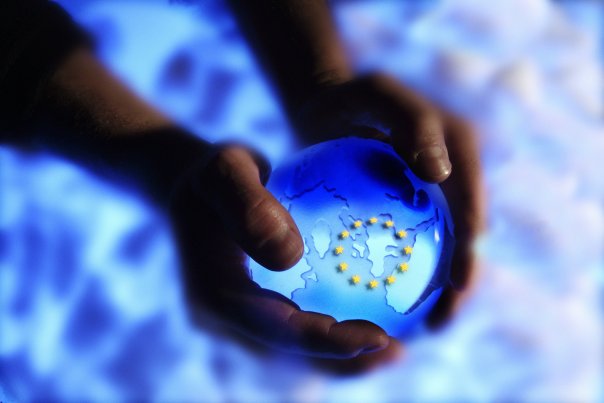Why it Matters That the European Union Received the Nobel Peace Prize

Last Friday when the European Union received the Nobel Peace Prize, the reactions were split. Beyond the element of surprise, a number of voices criticized this choice, as the European Union is currently living through its greatest crisis; many are predicting the end of the euro in and are comparing the award to the highly controversial choice of Obama in 2009.
For me, however, as a young European that grew up in a peaceful Europe, this Nobel Peace Prize is a much needed reminder of how far we have come from the Europe my grandparents grew up in. The Europe that I know, where any citizen can travel and work freely, where needing a visa has disappeared, where studying in another European country is now a right of passage for any student, is not only often taken for granted, but even criticized.
With unemployment rising and economies struggling, many Europeans, like Americans, are blaming globalization and the European Union, in particular. As a consequence, nationalism is rising and anti-European Union parties are winning elections. On this side of the Atlantic, Americans often see the European Union as an inefficient, undemocratic bureaucracy that is incapable of solving its problems and, thus, is endangering the US economy as well.
By choosing the European Union as the recipient of the Nobel Prize for its work over six decades of advancing "peace and reconciliation, democracy and human rights," the Oslo Committee is reminding us, in these hard times, of what is truly important.
Indeed, just 70 years ago, Europe saw the worst bloodshed in the history of the world, World War II and the Holocaust. This is the last example in a history of centuries of wars, disputes, and hate between neighbors. Having started the construction of the European Union so soon after it is an amazing achievement that is not always fully understood by the American psyche, despite its inestimable role in both WWI and WWII. Less than 5 years after the end of the war, less than 5 years after the Germans left Paris, the French Foreign Minister and the German Chancellor were able to agree on the foundation of an economic union that lead, after many transformation, to the actual European Union.
This Union between European nations was felt at a personal level. My parents, one from England and one from France, met in Germany. In another instance, the first thing my German soon-to-be roommate told me was that I would have to pay more rent because of the territories Germany lost during the war. This would not have been possible without a European Union that worked so hard to erase the scars of centuries of war. With some comparison, the American Civil war ended in 1865 but the resentment from the southern states lasted for decades and can still be felt to this day.
The European Union's pacifying mission is not limited to enabling ancient enemies to become the strongest allies, but it helped many countries transitioning from dictatorships, communist regimes, and war-stricken countries into rather efficient democracies. It is sometimes forgotten that Greece and Portugal were dictatorships until 1974, Spain until 1975, or that only 20 years ago Estonia, Latvia, Lithuania, Poland, Romania, Bulgaria, Slovakia, Hungary, Czechoslovakia, were still communist countries.
Yes, the European Union is far from perfect, yes we need to work together to decide where we want to go and what we want to achieve, but thanks to the recognition by the Nobel Academy of all the work we have achieved to unify a continent, we can take a moment to appreciate what we have and be hopeful about the future.




